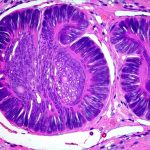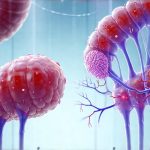Chronic symptoms – fatigue, brain fog, skin issues, autoimmune flares, even mood disturbances – are often treated as isolated problems, addressed with specific medications or therapies targeting each individual complaint. However, increasingly, healthcare professionals and individuals alike are recognizing the profound interconnectedness of bodily systems, and specifically, the significant role the gut plays in overall health. For decades, we’ve understood the digestive system’s basic function: to break down food and absorb nutrients. But modern research reveals a far more complex picture – one where the gut isn’t just about digestion, it’s central to immunity, neurological function, hormonal balance, and much more. This realization is driving interest in “gut healing” as a potential approach to alleviating a wide spectrum of chronic conditions.
The concept of gut healing isn’t about magically fixing a broken gut overnight; rather, it encompasses strategies aimed at restoring the integrity and balance of the gastrointestinal system. It acknowledges that many chronic symptoms aren’t necessarily caused by specific pathogens or deficiencies but stem from underlying imbalances within the gut microbiome (the trillions of bacteria, fungi, viruses, and other microorganisms residing in our digestive tract) and the intestinal lining itself. This approach focuses on supporting the body’s natural healing processes through dietary changes, lifestyle modifications, and sometimes targeted supplementation – all with the aim of improving gut function and, consequently, overall well-being. It’s important to note that this is often best approached in collaboration with a qualified healthcare professional who can help tailor strategies to individual needs. If you are struggling with food sensitivities, consider exploring can gut healing as an option.
The Gut-Brain Connection: A Two-Way Street
The link between the gut and the brain – often referred to as the gut-brain axis – is now firmly established by scientific research. It’s not merely a one-way street, with the brain influencing digestion; it’s a complex bidirectional communication system. The vagus nerve acts as a major highway, directly connecting the gut to the brain. But this connection extends far beyond that single nerve. Gut bacteria produce neurotransmitters – chemical messengers like serotonin and dopamine – that influence mood, cognition, and emotional regulation. In fact, a significant portion of the body’s serotonin is produced in the gut.
Furthermore, inflammation in the gut can trigger systemic inflammation throughout the body, including the brain, potentially contributing to neurological symptoms like brain fog, anxiety, and depression. A compromised gut barrier – often referred to as “leaky gut” – allows undigested food particles, toxins, and bacteria to enter the bloodstream, triggering an immune response and further exacerbating inflammation. This can not only impact mental health but also contribute to autoimmune conditions and other chronic illnesses. Restoring gut health through strategies like a nutrient-dense diet, stress management techniques, and probiotic supplementation may therefore have a positive impact on both physical and mental well-being. It’s important to be aware that gut sensitivities can even contribute to panic attacks in some individuals.
The microbiome itself is incredibly sensitive to factors like diet, antibiotics, stress, and environmental toxins. These factors can disrupt the delicate balance of bacteria in the gut, leading to dysbiosis – an imbalance that’s been linked to a wide range of conditions, including irritable bowel syndrome (IBS), anxiety, depression, and even neurodegenerative diseases. Supporting a healthy microbiome through dietary changes (like increasing fiber intake and consuming fermented foods) can therefore be a crucial step in improving both gut health and brain function. You may also want to consider making space when your gut flares up.
Addressing Common Chronic Symptoms Through Gut Healing
Many chronic symptoms that seem unrelated to digestion may actually have roots within the gastrointestinal system. Here are some examples:
Fatigue & Low Energy: Chronic fatigue isn’t always about lack of sleep or overwork. Malabsorption of nutrients due to gut dysfunction can lead to deficiencies in essential vitamins and minerals – like iron, B12, and vitamin D – that are vital for energy production. Inflammation triggered by a leaky gut also drains the body’s resources, contributing to persistent fatigue. Gut healing protocols often focus on improving nutrient absorption through dietary changes and supplementation, as well as reducing inflammation.
Skin Conditions (Eczema, Acne, Psoriasis): The connection between gut health and skin health is becoming increasingly recognized. A compromised gut barrier can lead to increased systemic inflammation, which manifests in skin conditions like eczema and acne. Furthermore, imbalances in the gut microbiome can disrupt immune function, contributing to inflammatory responses that exacerbate these issues. Addressing gut dysbiosis through dietary changes (eliminating potential food sensitivities) and probiotic supplementation may help reduce inflammation and improve skin health.
Autoimmune Conditions: The gut plays a critical role in regulating the immune system. Approximately 70-80% of the immune system resides within the gut. When the gut barrier is compromised, it can trigger an autoimmune response – where the immune system mistakenly attacks healthy tissues. Gut healing strategies aim to reduce inflammation, restore gut barrier integrity, and modulate the immune system, potentially helping to manage autoimmune symptoms. This isn’t about “curing” autoimmunity (which often requires ongoing medical management), but rather supporting the body’s ability to regulate its immune response.
Implementing a Gut Healing Approach: A Step-by-Step Guide
While individual approaches will vary depending on specific needs and underlying conditions, here are some general steps that can be incorporated into a gut healing protocol:
- Dietary Changes: This often involves removing potential irritants like gluten, dairy, sugar, processed foods, and excessive alcohol. Focusing on whole, unprocessed foods – fruits, vegetables, lean proteins, healthy fats – is crucial. Elimination diets under the guidance of a healthcare professional can help identify food sensitivities.
- Increase Fiber Intake: Fiber feeds beneficial gut bacteria, promoting a diverse and thriving microbiome. Good sources include leafy greens, berries, legumes, and whole grains (if tolerated).
- Hydration: Adequate hydration is essential for optimal digestion and nutrient absorption.
- Stress Management: Chronic stress negatively impacts the gut microbiome and can contribute to inflammation. Incorporating stress-reducing practices like yoga, meditation, or deep breathing exercises is vital.
- Probiotic & Prebiotic Support: Probiotics (live beneficial bacteria) and prebiotics (food for those bacteria) can help restore balance in the gut microbiome. However, it’s important to choose high-quality supplements and consider individual needs. Not all probiotics are created equal.
- Consider Digestive Enzymes: If you struggle with digestion, digestive enzymes may help break down food more effectively, reducing bloating and discomfort. You should also be aware of whether caffeine worsens gut inflammation for you.
It’s crucial to remember that gut healing is a journey, not a destination. It requires patience, consistency, and often the guidance of a qualified healthcare professional. Don’t attempt radical changes without proper support and monitoring – gradual implementation is usually more effective and sustainable. For individuals experiencing chronic gut trouble, compassion practices can be incredibly helpful.
The Importance of Personalized Approaches
The “one-size-fits-all” approach rarely works when it comes to health, and this is particularly true for gut healing. What works for one person may not work for another, due to differences in genetics, lifestyle, existing conditions, and the composition of their microbiome. Therefore, a personalized approach is essential. This involves identifying specific imbalances within the gut and tailoring strategies to address those individual needs.
For example, someone with histamine intolerance might need to avoid fermented foods that are generally recommended for gut health, as they can exacerbate symptoms. Similarly, individuals with Small Intestinal Bacterial Overgrowth (SIBO) may require different interventions than those with a leaky gut. Diagnostic testing – such as stool analysis, breath tests for SIBO, and food sensitivity testing – can provide valuable insights into the underlying causes of gut dysfunction and help guide treatment decisions. It’s also important to recognizing gallbladder symptoms that might be causing issues.
The role of a healthcare professional—a functional medicine doctor, registered dietitian specializing in gut health, or naturopathic physician—is paramount here. They can interpret test results, develop personalized protocols, and monitor progress effectively. Self-treating without proper guidance could potentially worsen symptoms or mask underlying conditions. Seeking expert advice ensures safety and maximizes the chances of success.
Ultimately, gut healing is about more than just fixing digestive issues; it’s about restoring holistic health by addressing the root causes of chronic symptoms and supporting the body’s natural ability to heal itself. It requires a commitment to lifestyle changes, a willingness to explore personalized approaches, and a collaborative relationship with healthcare professionals. While it’s not a quick fix, the potential benefits for overall well-being are significant.


















